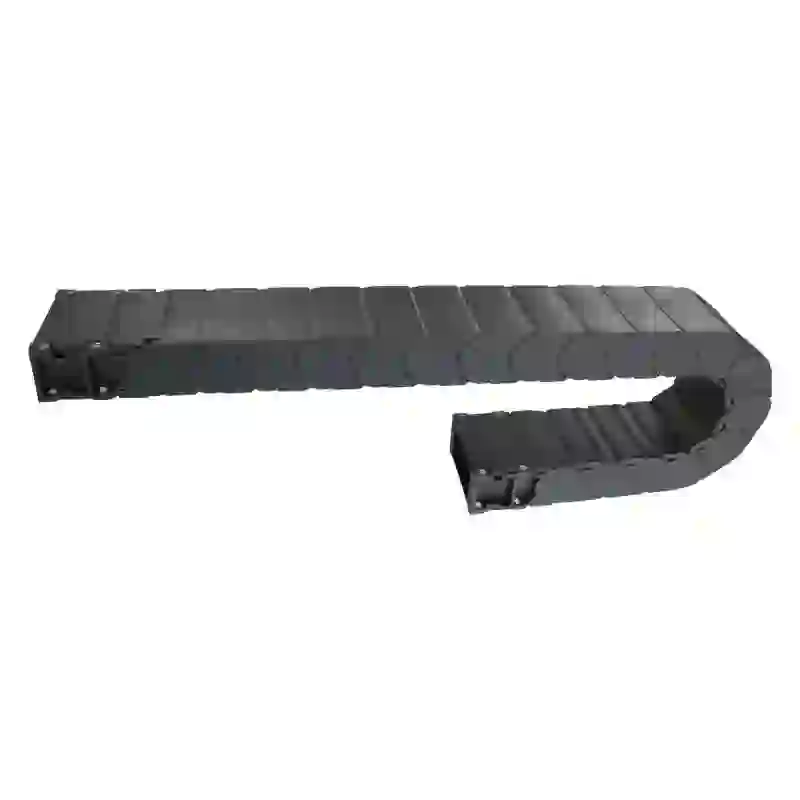Innovative Solutions for Efficient Electrical Cable Management and Support Systems
Understanding Electrical Cable Carriers Functions, Benefits, and Applications
Electrical cable carriers, also known as cable tracks or cable chains, play a crucial role in various industries by facilitating the movement and protection of electrical cables and hoses. Whether in manufacturing plants, construction sites, or automation facilities, these systems help streamline operations and ensure safety and efficiency.
What are Electrical Cable Carriers?
Electrical cable carriers are designed to guide and protect cables that need to move as part of machinery operations. They consist of a series of interconnected links, forming a flexible channel that encases cables while allowing for movement. Typically made from materials such as plastic or metal, these carriers are engineered to withstand diverse environmental conditions, including high temperatures, chemical exposure, and mechanical stresses.
Functions of Electrical Cable Carriers
1. Cable Management One of the primary functions of cable carriers is to organize and manage cables. By grouping cables together, they prevent tangling and abrasion, which can lead to wear and tear, eventually compromising the integrity of the cables.
2. Protection Cable carriers shield cables from environmental hazards such as dirt, moisture, and mechanical damage. This protection is essential to ensure the longevity of the cables and reduce the risk of unexpected downtimes caused by cable failures.
3. Flexibility and Mobility These carriers allow for smooth movement of cables in dynamic applications, such as robotic arms and CNC machines. Their design enables them to accommodate various movement paths, including horizontal, vertical, or even complex automated routes.
4. Ease of Installation Most cable carriers feature an easy-to-install design, often allowing for quick assembly and disassembly. This user-friendly aspect facilitates maintenance and changes in layout, making them ideal for industries that require frequent reconfiguration of equipment.
Benefits of Using Electrical Cable Carriers
1. Enhanced Efficiency By streamlining cable management, electrical cable carriers minimize the chances of workplace disruptions caused by tangled or damaged cables. Improved efficiency translates to reduced downtime and higher productivity.
electrical cable carrier

2. Reduced Maintenance Costs The protective features of cable carriers help avoid frequent cable replacements, leading to lower maintenance costs. This can significantly impact the overall operational budget, particularly in large-scale industrial settings.
3. Safety Properly organized and protected cables reduce the risk of accidents in the workplace. Employees are less likely to trip over loose cables, and the chances of electrical hazards are minimized, promoting a safer working environment.
4. Adaptability Electrical cable carriers are available in various sizes and configurations, making them adaptable to diverse industries and applications. This flexibility allows for customized solutions that cater to specific operational needs.
Applications of Electrical Cable Carriers
1. Manufacturing In manufacturing settings, cable carriers are commonly used on assembly lines and automated systems to keep cables organized and protected from wear and stress.
2. Robotics In the robotics sector, cable carriers facilitate the movement of sensors and power cables, optimizing the functionality of robotic arms and automated machinery.
3. Construction On construction sites, cable carriers safeguard electrical cables that supply power to tools and equipment. This ensures that operations run smoothly without the risk of accidental damage.
4. Automotive In the automotive industry, cable carriers are utilized in assembly processes to manage wiring harnesses and prevent interference with moving components.
5. Aerospace In aerospace applications, where reliability is paramount, electrical cable carriers provide essential support in managing complex cable assemblies in aircraft.
Conclusion
Electrical cable carriers are indispensable components across a multitude of industries, offering solutions that enhance cable organization, protection, and mobility. Their ability to improve efficiency, safety, and adaptability makes them a wise investment for any operation that relies on electrical cables. As industries continue to evolve with technology, the demand for cable management solutions like electrical cable carriers will undoubtedly grow, emphasizing the importance of these systems in the modern industrial landscape.








